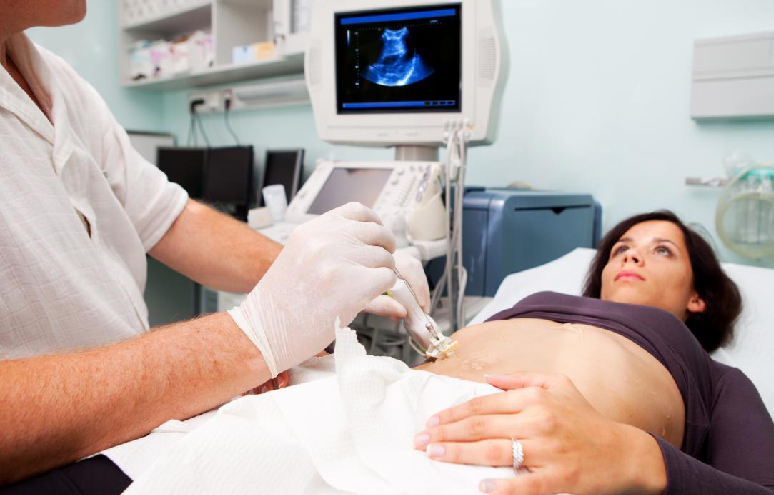Complications of Chronic Liver Disease –By Dr. Sharan Narute in Pune & PCMC

Complications of Chronic Liver Disease
Complications of chronic liver disease refer to the various adverse outcomes that can arise as a result of progressive liver damage and dysfunction. These complications can significantly impact patients’ quality of life and overall prognosis.
These complications can be debilitating, but with timely medical attention, many can be managed or even prevented. Our team of liver specialists in Pune is equipped to sort and manage any type of liver complication , using advanced diagnostics, individualized treatment plans, and the latest in medical and interventional therapies.
If you or your loved one is dealing with chronic liver disease, early recognition of these complications and expert care can make a significant difference
Common Complications
Complications of chronic liver disease can be severe and life-threatening if not addressed promptly. One of the most common is portal hypertension, caused by increased pressure in the portal vein due to liver scarring. This can lead to ascites, the accumulation of fluid in the abdomen, causing discomfort and swelling. Hepatic encephalopathy may occur, affecting brain function and leading to confusion or coma. Hepatorenal syndrome is a dangerous condition involving kidney failure linked to liver dysfunction. Hepatopulmonary syndrome can cause low oxygen levels due to abnormal blood flow between the lungs and liver. Variceal bleeding, especially from esophageal varices, is another serious risk. Spontaneous bacterial peritonitis is an infection of the abdominal fluid that can occur without warning. Hepatocellular carcinoma, a type of liver cancer, can develop in cirrhotic patients. Coagulopathy, or impaired blood clotting, is also common due to reduced liver function.
Symptoms
In the early stages, chronic liver disease may remain silent, with no noticeable symptoms. However, as liver damage progresses and complications begin to develop, patients may experience a variety of distressing signs that indicate worsening liver function and the involvement of other organs. Recognizing these symptoms early is crucial for timely medical intervention.
Common symptoms of complications of chronic liver disease include:
Abdominal swelling or bloating due to fluid accumulation (ascites)
Confusion, forgetfulness, or personality changes (hepatic encephalopathy)
Yellowing of the skin and eyes (jaundice)
Dark-colored urine and pale stools
Swelling in the legs and ankles
Vomiting of blood or black, tarry stools (indicating variceal bleeding)
Shortness of breath and fatigue (linked to hepatopulmonary syndrome)
Reduced urine output and swelling (a sign of hepatorenal syndrome)
Easy bruising or bleeding due to impaired clotting
Unintentional weight loss and muscle wasting
These symptoms often reflect serious complications such as portal hypertension, liver cancer, or multi-organ dysfunction. Immediate evaluation and management by a liver specialist can significantly improve outcomes and quality of life.
Treatment
Managing complications of chronic liver disease involves a holistic approach that aims to slow disease progression, relieve symptoms, and treat the underlying cause. With proper care and timely intervention, patients can maintain a better quality of life and reduce the risk of life-threatening outcomes.
Here’s how treatment is typically approached:
Lifestyle Changes:
Patients are advised to follow a liver-friendly lifestyle that includes a nutritious diet, regular physical activity, weight management, and strict avoidance of alcohol and harmful medications or toxins that can worsen liver function.Targeted Medications:
Depending on the cause, patients may receive antiviral therapy for hepatitis, immune-suppressing drugs for autoimmune liver conditions, or supportive medications to ease symptoms like swelling, itching, or fatigue.Complication Management:
Specific complications such as ascites, variceal bleeding, hepatic encephalopathy, and spontaneous bacterial peritonitis are managed through a combination of medications, dietary changes, and, in some cases, minimally invasive procedures.Liver Transplantation:
In patients with advanced liver failure or irreversible damage, liver transplant becomes the only curative option. Early evaluation and timely referral can significantly enhance survival and recovery outcomes.
Our expert team is dedicated to delivering advanced, patient-focused care for all stages of liver disease. From early diagnosis to long-term management and surgical care, we handle even the most complex liver cases with clinical excellence. Patients receive complete transplant evaluation and support under the care of the best transplant surgeon in Pune, ensuring every step of their journey is guided by experience and precision.
